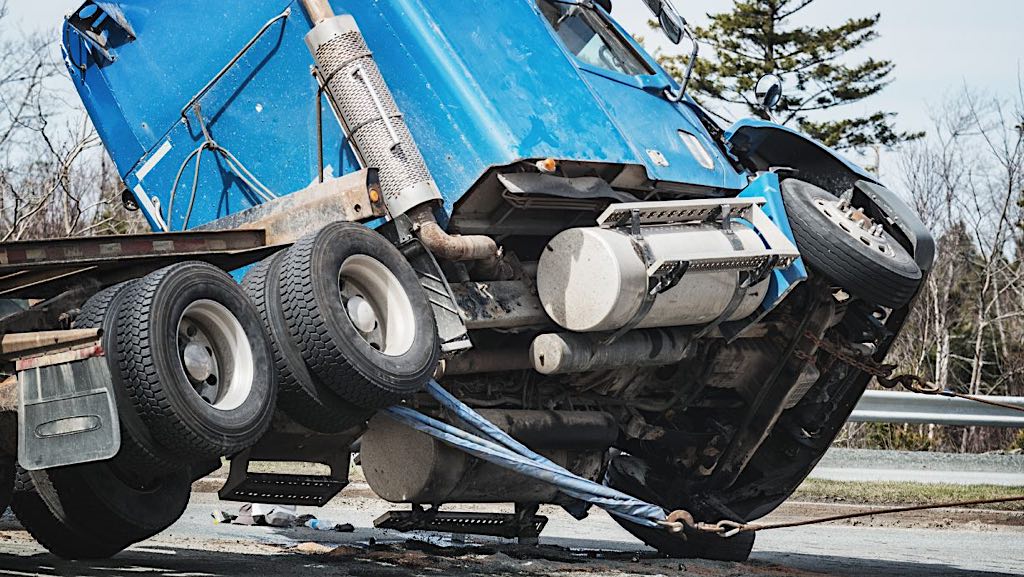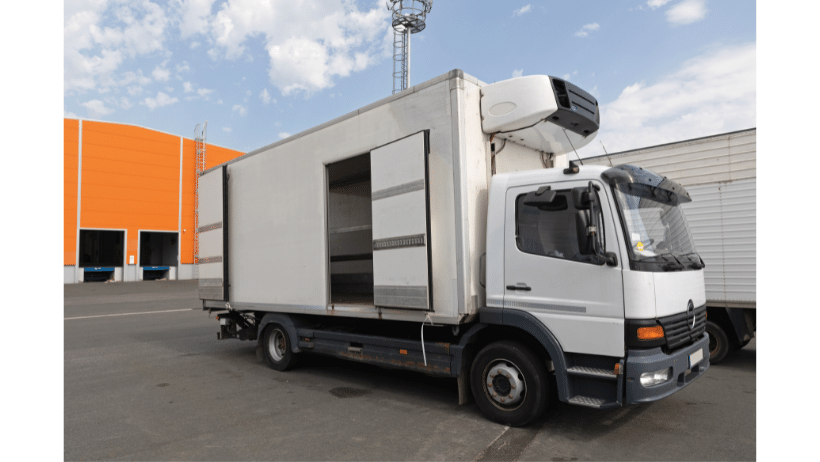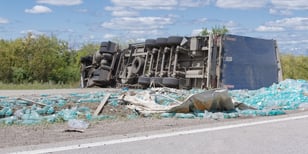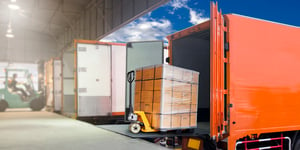
One thing you will realize early on when shopping for trucking insurance is that one size does not fit all. The type of cargo you transport will determine your coverage needs, risk factors, and premium costs. Whether you are hauling hazardous materials, perishable goods, or bulk liquids, each type requires specialized insurance considerations. Purchasing the right coverage protects the cargo and the business transporting it.
Special Considerations for Hazardous Materials
Hazardous materials (HAZMAT) pose higher risks, and standard trucking policies don't always cover them. These materials include flammable liquids, corrosive chemicals, explosives, and radioactive substances. Due to their potential to cause environmental damage, injury, or even fatalities, federal regulations require carriers to have specific liability limits and undergo safety compliance checks.
HAZMAT transport insurance must include pollution liability, which covers cleanup costs in case of spills or leaks. Additionally, motor truck cargo insurance should be tailored to reflect the high value and potential hazards associated with these loads.
Because of the increased risk profile, premiums for hazardous materials coverage are almost always higher, but the protection it provides is essential for legal and financial security.
Insurance for Perishable Goods
Perishable goods—such as fresh produce, dairy, meat, and frozen items—require timely delivery and temperature control throughout transit. Any delay, mechanical failure, or deviation in temperature can lead to spoilage, which results in significant financial loss. That's why insurance for perishable goods must go beyond basic cargo coverage.
Refrigeration breakdown or spoilage insurance is a must for reefer (refrigerated) truck operators. This coverage protects against losses caused by mechanical or electrical failures in refrigeration units, driver error, or power interruptions. Time-sensitive delivery windows can also increase liability, so insurance policies account for potential penalties due to missed deadlines or rejected loads.
Insurers can require temperature-monitoring devices and regular equipment maintenance to help mitigate risk. Documenting temperature logs and having protocols for backup refrigeration solutions can also support claims in the event of spoilage.
Liquids and Bulk Cargo Insurance
Liquid and bulk cargo, such as petroleum, chemicals, grains, or aggregates, presents its own unique set of challenges. Spillage, contamination, and volume loss due to evaporation or leakage are among the top concerns. Unlike packaged goods, bulk cargo isn't always easily quantifiable or traceable, which can complicate claims.
Insurance for bulk cargo must account for the specific material, whether it's hazardous or non-hazardous, food-grade or industrial. Contamination insurance is essential for food-grade liquids, such as milk or juice, while environmental liability is a significant consideration for those transporting petroleum or chemicals.
Tankers and hoppers also face a higher risk of rollover accidents due to shifting weight. As a result, insurers often mandate stricter safety protocols and offer coverage enhancements for cargo spillage and cleanup. Accurate documentation of load quantities and containment systems is essential for effective risk management and successful claims.
Choosing the right trucking insurance, tailored to the cargo type, safeguards your business. From regulatory compliance to specialized coverage, aligning your policy with your cargo ensures smoother operations and better financial protection on the road.
Contact us for the Best Prices on Commercial Truck Insurance!
We are independent brokers here at American Insuring Group. Our agents shop the market for the best quality insurance rates that match your needs!
Call us today at (610) 775-3848 or online for the best truck and commercial vehicle insurance rates!



 Cargo theft can increase
Cargo theft can increase  If you are or are planning to become an independent owner-operator, you must ensure that you have the right
If you are or are planning to become an independent owner-operator, you must ensure that you have the right  Commercial Truck Insurance
Commercial Truck Insurance If you own a fleet of trucks, are an independent truck driver, or use trucks for business, you need
If you own a fleet of trucks, are an independent truck driver, or use trucks for business, you need  Safer drivers mean fewer accidents, and fewer accidents mean lower
Safer drivers mean fewer accidents, and fewer accidents mean lower  If your business owns or uses trucks, you need to have the right
If your business owns or uses trucks, you need to have the right  As more and more risk managers require Cargo Insurance, it’s essential to understand how it fits in with your
As more and more risk managers require Cargo Insurance, it’s essential to understand how it fits in with your  Cargo Theft is a $15 to $35 billion industry that can drive up
Cargo Theft is a $15 to $35 billion industry that can drive up 




